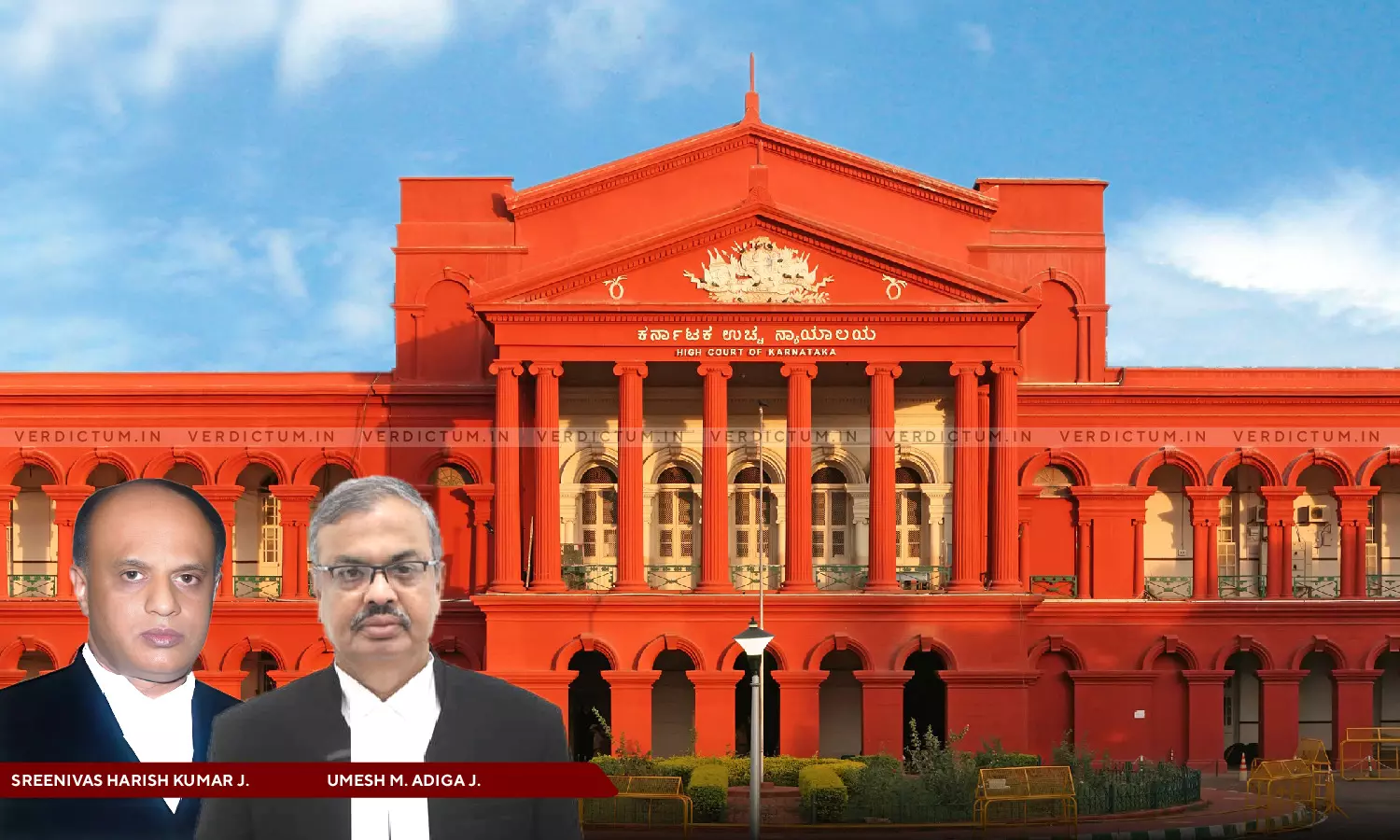
If Partial Partition Of Properties Devolving On Heirs Takes Place, Undivided Property Will Be Held By All Members As Tenants In Common: Karnataka HC
 |
|The Karnataka High Court explained that if partial partition of properties devolving on heirs by intestate succession takes place, undivided property will be held by all the members as tenants in common.
The Court was deciding an appeal preferred against the judgment of the Additional City Civil and Sessions Judge, dismissing the suit as not maintainable.
A Division Bench of Justice Sreenivas Harish Kumar and Justice Umesh M. Adiga observed, “The language of the section connotes the meaning that it applies to intestate succession to the property, to be more specific, self acquired or separate property of male or female Hindu under sections 8 or 15 of the Act. In case a partial partition of the properties devolving on heirs by intestate succession takes place, the property which remains undivided will be held by all the members as tenants in common.”
The Bench added that, in so far as coparcenary property is concerned, if a partial partition takes place, the property which remains undivided will be held by coparceners as tenants in common as against third parties who are not members of coparcenary, but the coparceners hold the undivided property as joint tenants.
Jayanth Balakrishna appeared as a party in person while Senior Advocate Dhananjaya Joshi and Advocate Kashyap N. Naik appeared for the respondents.
Factual Background -
The appellant, Jayashree Jayanth, filed a suit seeking partition and her 1/8th share of the family property. This property belonged to the Hindu Undivided Family (HUF) of Bore Gowda, her great-grandfather. Bore Gowda had two daughters and a son, P.B. Nanjiah. P.B. Nanjiah's second wife, Lingammal, had three sons: Ramoo Gowder, Chandappa, and Krishnaswamy (the first defendant). The appellant was Krishnaswamy’s daughter and contended that she was denied her legitimate share due to misinterpretation of the law. She contested multiple partition deeds that divided family properties.
The first defendant (Krishnaswamy) argued that all family properties were self-acquired and not from ancestral nucleus. He also argued that partitions had occurred properly under legal provisions, barring the appellant from claiming a share. The Trial Court dismissed the suit in 2016, holding that the claim was not maintainable, applying principles of Hindu Succession Act, 1956 particularly under Sections 6 and 8. Being aggrieved, the appellant filed an appeal before the High Court against this decision.
The High Court in the above context of the case, noted, “… reliance has been placed on P.Cheradappa Pai vs Agricu ltural Income Tax Officer (AIR 1970 MYS 168), in which it is held that, in regard to any portion of the property that remained undivided the presumption would be that members of the family would hold it as tenants in common until a special agreement to hold as joint tenants is proved.”
The Court said that when a partition of a coparcenary property takes place, the share allotted to each of the members is ancestral property in his hands as regards his own issue though it is looked upon as separate property as regards the separated members.
“… if the undisputed facts in this case are seen, the partitions of the year 1955 and 1966 exclude defendants 5 to 19 from the suit in relation to properties other than items 1 to 3 of the plaint schedule. Though it is the specific contention of the first defendant that the properties other than items 1 to 3 were self-acquisitions and therefore the plaintiff is not entitled to claim partition as devolution on the first defendant was under section 8 of the Act, according to the plaintiff, income from items 1 to 3 of the plaint schedule was the source for acquisition of other plaint schedule properties”, it added.
The Court, therefore, concluded that the defendants 5 to 19 cannot be excluded from the suit insofar as items 1 to 3 are concerned and now, the final conclusion is that the impugned order cannot be set aside in entirety. It said that the suit survives to a limited extent to examine the entitlement of the plaintiff to partition.
Accordingly, the High Court partly allowed the appeal and modified the impugned order.
Cause Title- Jayashree Jayanth v. N. Krishnaswamy & Ors. (Neutral Citation: 2024:KHC:42467-DB)
Appearance:
Appellant: Jayanth Balakrishna
Respondents: Senior Advocate Dhananjaya Joshi, Advocates Kashyap N. Naik, S.H. Prashanth, Jayakumar N.D., and Akshay B.M.